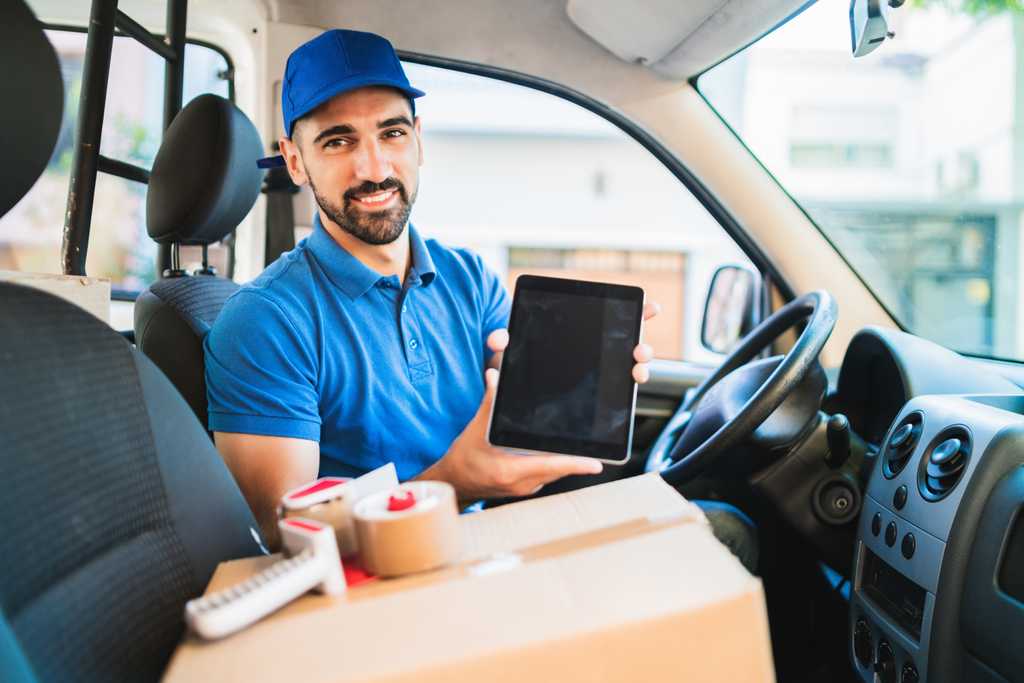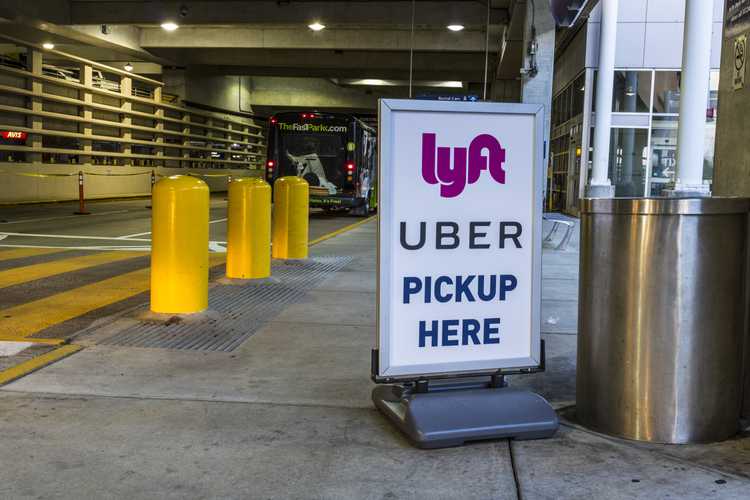Maybe working as a delivery driver for a service such as DoorDash or GrubHub is something you’re considering. You’re a hard worker and are willing to hustle. Of course, you have a car. But before you sign on with a delivery service and start taking on jobs, you owe it to yourself to understand the car insurance implications of this line of work.
Growth in delivery services means opportunities for delivery drivers
Delivery services have seen impressive growth during the pandemic. Consumers have wanted to support their local restaurants (and enjoy those restaurants’ food) without actually setting foot in them, so they’ve turned to delivery. Similarly, more Americans have avoided brick and mortar stores for the convenience and safety of having their purchases delivered to their homes.
According to an article in Restaurant Business, using research conducted by the finance services company Rewards Network, 31% of restaurants invested in food delivery in the spring of 2020, at the start of the COVID-19 pandemic. The delivery service GrubHub, meanwhile, added 25,000 restaurant partners between May and August of that year.
All this has meant opportunities for delivery drivers. Many people have been able to take advantage of growth in this corner of the “gig economy” to earn extra cash using one of their most valuable assets — their own car.
But if you are thinking about being a delivery driver (or already have a job working as one), be aware that your car insurance may need to be updated. This is true even if the company you’re working for says it provides you with insurance.
You’re going to need to update your car insurance
First things first. Let’s look at the car insurance you currently have.
Unless you already use your car as a business vehicle — and you’ve discussed that fact with your insurance company or agent — you probably have a personal auto insurance policy. When you bought that policy, you stated to the insurance company that you use your car only for non-business purposes, such as commuting to work or school, shuttling your kids around town, going on the occasional road trip, etc.
But people driving for business — including contract delivery drivers, such as yourself — present a different risk to the insurance company. So, your insurer will want you to have a commercial auto policy, or at least special additions to your personal auto policy that allow for business use. You can expect that to cost more in premium than your standard personal auto policy.
There are coverage differences between the two types of policy, which makes it difficult to compare the costs. But for a general idea:
- According to a 2020 fact sheet by the American Automobile Association, the average premium for a full-coverage personal auto policy was about $1,200 per year.
- According to Insureon, an online marketplace for commercial insurance, the median premium for a commercial auto policy is about $1,700 per year.
As a possible alternative, a growing number of insurance companies now offer what’s called rideshare insurance. While designed as a personal auto policy modification for drivers working for Uber, Lyft, and other rideshare services, some companies’ offerings do provide insurance for delivery drivers. Note that not every company offers rideshare insurance in every state, and not every insurer’s program includes coverage for deliveries. But it may be worth asking your insurance company about its availability, as it may cost quite a bit less than a commercial auto policy.
In any event, you should factor this added cost into your decision to pursue a delivery job. Remember that with either a commercial or personal auto policy, it’s always a good idea to check with several companies to make sure you’re getting the lowest premium.
What if you work as a delivery driver with a standard personal auto policy?
Now, in case you’re thinking you can sneak by working as a delivery driver with a personal auto policy … well, the consequences can be severe.
Simply put, if you’re responsible for causing an accident (and you’ll be driving a lot more miles — often in a rush — so the probability of that happening rise), then your insurance company will probably deny your claim, and may cancel your policy altogether. This would leave you having to repair or replace your car with money out of your own pocket, and be liable (responsible) for any damage and/or injuries you inflict on other drivers. Even if your assets are limited now, a court could impose a lien on you that could force you to reimburse others for years to come.
Driving with a personal auto insurance policy will likely also invalidate any additional insurance provided by the delivery service. Let’s look at that next.
But what about insurance provided by the delivery company?
It’s true that many delivery companies do state that they provide insurance coverage. However, it’s important to understand just what this insurance does and doesn’t do.
Some of these companies offer what’s called excess liability insurance. This is liability that kicks in once your own liability coverage reaches its limit (and these companies do require you to carry your own insurance). Say you have $50,000 of physical damage liability coverage on your own insurance policy. You’re then responsible for an accident that results in $75,000 worth of repairs to another driver’s car. Your own insurance company would still need to pay that driver $50,000. Your delivery company’s insurance would kick in to pay the remaining $25,000. That $50,000 claim and payout would go on your insurance record, and likely cause your premium to go up in the future.
It’s also quite common for the delivery company’s insurance to apply only when you’re actually driving to make a delivery — the time between when you pick up a customer’s order and drop it off. The coverage therefore would not apply when you’re driving to pick up the customer’s order, or after you’ve delivered that order to the customer’s doorstep. You’d have to rely on your own insurance if you get into an accident during those times.
Be aware of another issue: If you’re in an accident and are determined to be at fault, many delivery company insurance policies will not provide you with any reimbursement of the costs to repair your own vehicle. Instead, you’d have to file a collision claim with your own insurance company, or pay out of pocket if you don’t have collision coverage on your policy.
What insurance do delivery companies offer?
To get a better idea of what you’re signing up for, let’s take a look at what some of the leading delivery companies offer their drivers from an insurance perspective.
Amazon Flex
The Amazon Flex website states the following:
"As a delivery partner, you must maintain the required insurance for delivering packages in your area. In addition to your personal coverage, Amazon provides delivery partners in all states other than NY with the Amazon Commercial Auto Insurance Policy at no cost. This policy includes:
- Auto liability coverage
- Uninsured motorist/under-insured motorist coverage
- Contingent comprehensive and collision coverage
This auto insurance policy applies only to Amazon Flex delivery partners (passengers are not covered), who maintain personal auto insurance on the vehicle they are driving and who are actively delivering during the delivery block. In addition, if anyone other than the Amazon Flex delivery partner is driving when an accident occurs, the claim for any incurred losses will be denied. Due to local regulations, coverage does not apply to drivers in the state of New York. If you live in New York, you may need additional commercial insurance to meet New York state law. Check with your insurance company for more information. If you are renting or borrowing a car, you will need to ensure that you have required coverage."
DoorDash
The DoorDash website states the following:
"DoorDash does provide excess auto insurance for Dashers, but this policy applies only:
- Damages you cause to other parties. This includes third party property damage and/or bodily injury.
- Accidents while on an active delivery including either when you are driving to a pickup location after accepting an order or in possession of goods to be delivered. This excess insurance applies only after you go through your own auto insurance policy first.
possession of goods to be delivered. This excess insurance applies only after you go through your own auto insurance policy first. Note: Damages sustained to your vehicle in an auto accident are your responsibility and should be addressed by your auto insurance carrier directly. DoorDash requires all Dashers maintain an up-to-date auto insurance policy. If you fail to maintain your own insurance, DoorDash's coverage may not apply."
GrubHub
GrubHub’s website states only that you must have auto insurance. According to a recent article in Forbes, the company does not provide drivers with any additional insurance.
Instacart
According to Instacart’s contract for US-based contractors, the driver is solely responsible for "Securing and paying for automobile insurance in coverage amounts consistent with legal requirements, including any required no fault automobile insurance or commercial liability insurance…"
Another source confirms that the company offers no excess coverage to its drivers.
Postmates
Postmates’ website states that the company “…requires that all on-demand independent contractors (i.e., Postmates couriers) maintain an up-to-date, personal automobile liability policy…. Property damage sustained to your property in an accident are your responsibility and should be addressed by your personal insurance carrier. Postmates does provide excess coverage for third-party property damage and/or third-party bodily injury if your personal policy does not provide coverage or if your policy does not adequately cover damages.”
UberEATS
The UberEATS website currently states only that it requires its delivery drivers to have vehicle insurance. However, this source provides more detail about what the company offers drivers: “$1 million of liability coverage per incident. Uber holds a commercial insurance policy with $1 million of coverage per incident. Drivers’ liability to third parties is covered from the moment a driver accepts the request to deliver meals or goods to the time the delivery is complete.
Contingent comprehensive and collision insurance. If a delivery partner holds personal comprehensive and collision insurance this policy covers physical damage to that vehicle that occurs during a trip up to the actual cash value of the vehicle, for any reason, with a $1,000 deductible."
“$50,000/$100,000/$25,000 of coverage between trips. During the time that a ride-sharing partner is available but between deliveries, many personal auto insurance policies will provide coverage (this is not true). However, if the driver does not have applicable coverage, we maintain a policy that covers the driver’s liability for bodily injury up to $50,000/individual/accident with a total of $100,000/accident and up to $25,000 for property damage.”
Note that the author of this referenced article points out that it’s unlikely a personal insurance policy would provide coverage between deliveries.
Before you sign up for that first delivery
Working as a delivery job can be a great way to make some extra cash. But it’s a good idea to fully understand the insurance implications of the job.
A good first step is to check with the delivery company to determine what insurance they do offer. Next, contact your insurance company or agent. Explain that you’re planning to work as a delivery driver — with your own car — and see what they recommend for your insurance. Most major personal auto insurance companies offer commercial auto policies as well, so your current insurer is a great place to start. Don’t forget to shop around, though, to see if you can get a lower premium with another company.
Taking these steps now can save you a lot of headache and financial trouble if you should ever be responsible for a car accident while on the job.



